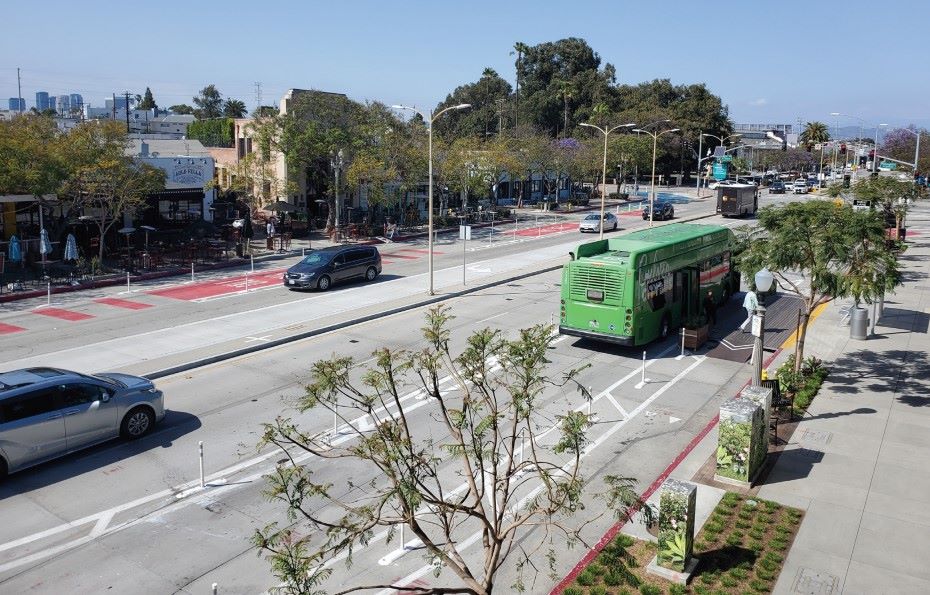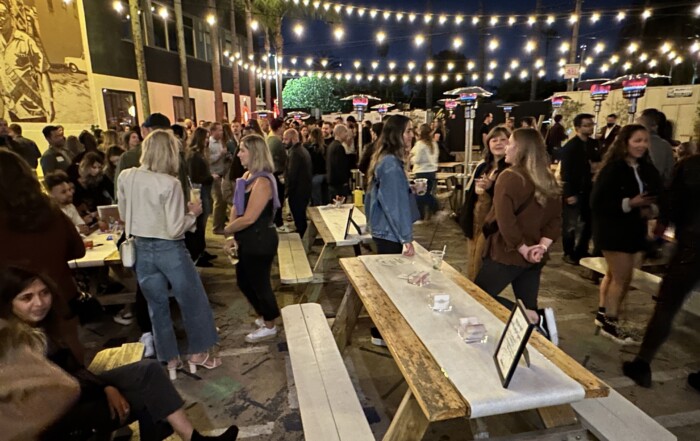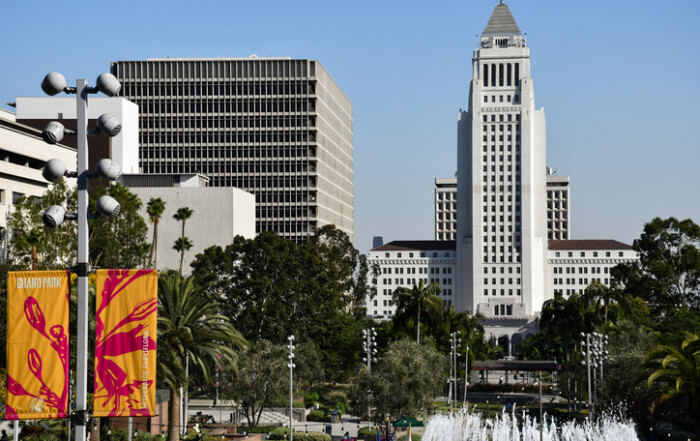Several bike lane projects were approved in Culver City Monday night, but the biggest is one that cycling advocates are against.
At its meeting Monday, the Culver City Council voted to move forward with contracts on several projects, most notably the planned restructuring of the MOVE Culver City project that is currently the subject of a lawsuit.
The council voted 3-2 in October to modify the Move Culver City project to the chagrin of the city’s cycling advocates. It was instituted with a protected bike lane next to a designated bus lane in the 1.3-mile Downtown Corridor but will be modified to remove the protected lane and turn the bus lane into a shared bus/bike lane to reinsert a lane for vehicle traffic after significant pushback from many residents and business owners along the corridor.
However, a lawsuit was filed in LA Superior Court (Case 23STCP03833) on October 17, alleging that the removal of the protected bike lanes would have an adverse environmental impact, and thus would require an Environmental Impact Review under the California Environmental Quality Act (CEQA)
While the MOVE Culver City project has been visualized since October of last year, two other bike projects that were also approved at the meeting are in more preliminary phases of planning. Task order contracts — which are created to outline the tasks and the potential range of costs of a project — were approved for a bike lane project on Robertson Boulevard and Culver Boulevard.
The Robertson Boulevard project is being funded as part of a grant given to the city from LA Metro for bike, pedestrian, or bus infrastructure projects near the Expo Station. The project will install Class IV bike pathways — which are protected bike lanes directly placed on streets — and either a bus only lane or bus bays along Robertson Boulevard from Venice Boulevard to Washington Boulevard.
Culver Boulevard will have bike paths installed from Duquesne Boulevard to Elenda Avenue to connect the Move Culver City project with the existing Class IV protected bike lane on Elenda Street and the entirely separated Class I bike path on Culver Boulevard west of Elenda Street. The contract allows for either a Class II bike path — which is placed along the street and marked by painted stripes and lanes — or a Class IV protected lane.
Design work is a big part of both of these contracts, as they not only task the firm with designing the bike lane itself but also with designing potential alternatives for how the street could function in other aspects like bus layover zones. This work would be brought to committees and the council for final approval.
Of the three projects, Move Culver City’s changes will cost the city the most, with the contract permitting spending up to $1,465,075. The task orders each have a price cap, with the Culver Boulevard project not exceeding a cost of $113,455 and the Robertson Boulevard project capped at $91,000.
As it has in the past, the topic of Move Culver City brought several residents to the podium at Monday’s meeting. Many were anxious to get the project moving, including Culver City Downtown Business Association’s Darrel Menthe, who spoke on behalf of the organization.
Menthe argued that the project was too far along in its process before taking input from Downtown Culver City business owners and that the increased strain on Culver Boulevard has caused traffic to leak into residential neighborhoods near the Downtown area.
“I know there is a lawsuit, but you have to forge ahead,” Menthe said. “It’s a shame that this had to be so divisive and had to take so long.”
Others pushed back against the idea that Move Culver City was causing people more difficulties in getting to their businesses and noted that action still needed to be taken to live sustainably and combat climate change
“We are in the middle of a climate change crisis that will only grow worse every year,” Karim Sahli, who is the spouse of former Culver City Mayor Meghan Sahli-Wells, said during his comments on the Move Culver City Project. “I don’t know what more writing on the wall you need…cars will need to be phased out and will be phased out.”
“I am really sorry for the businesses that are suffering,” resident Conor Proffitt said, “But I think that a bike lane is a convenient scapegoat because people are scared and people are angry.”
Photo courtesy of Move Culver City
Stay informed. Sign up for The Westside Voice Newsletter
By clicking submit, you agree to share your email address with Westside Voice. We do not sell or share your information with anyone.








